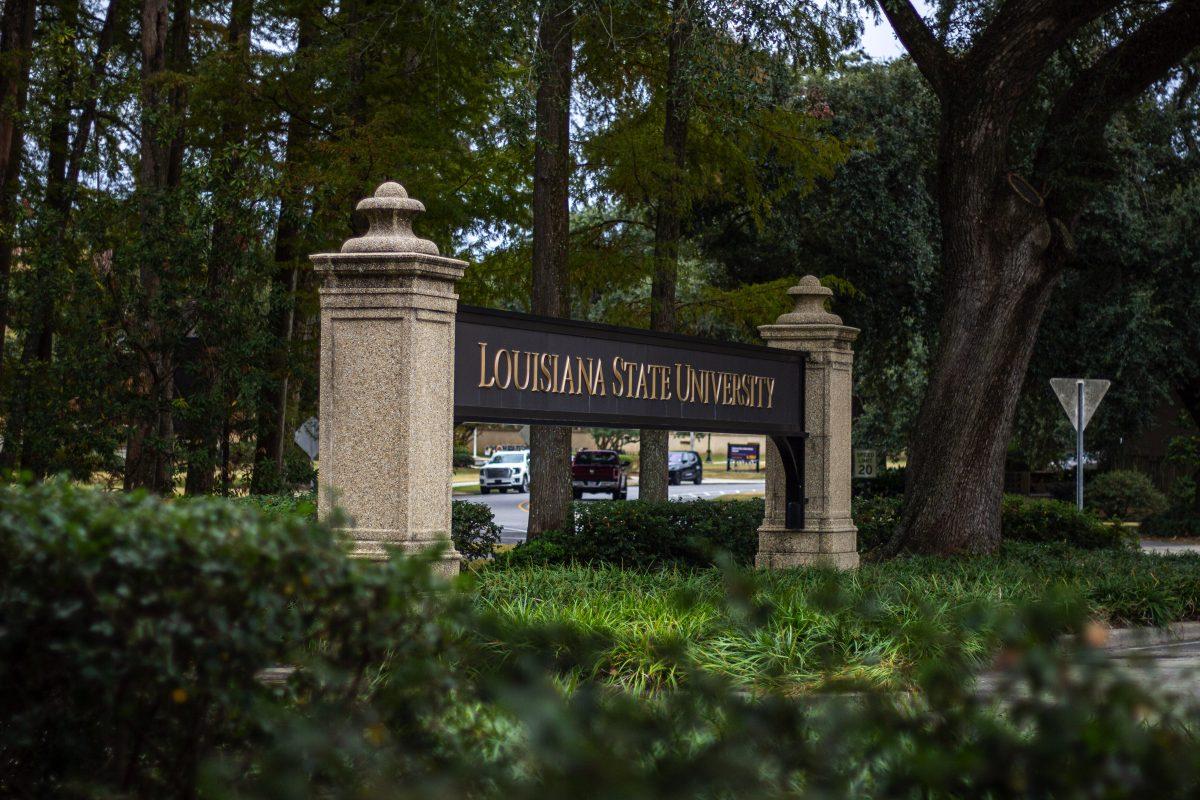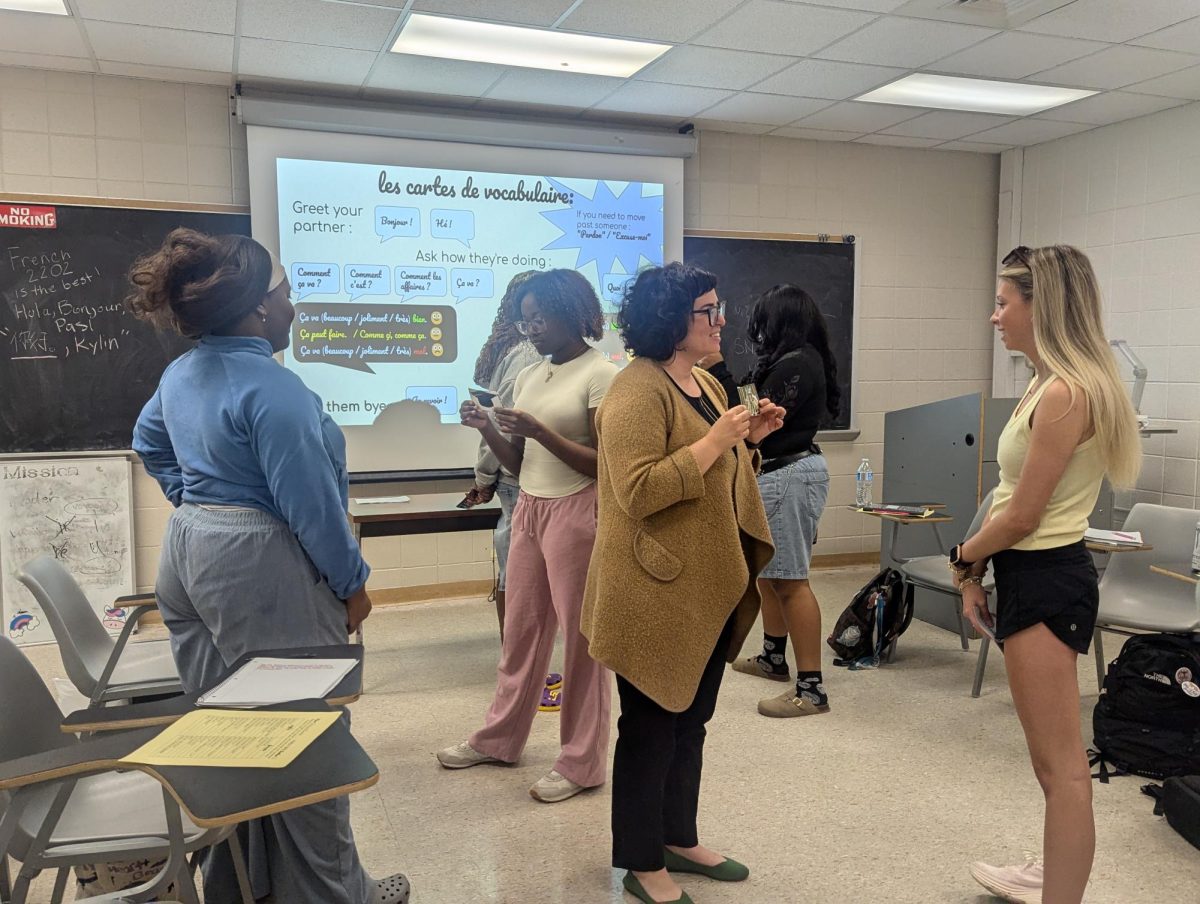Note: Click here to see the Louisiana Illuminator’s original reporting.
Near midnight Thursday, LSU students received a “shots fired” text from university police. The next morning, they awoke to the news that a man had been shot and killed at an apartment building next to campus.
Such occurrences are becoming increasingly common for the state’s flagship campus, where the academic year began with a kidnapping, an attempted kidnapping and an attempted armed robbery in the same week.
Higher education leaders are clear on what they need to address the problem: better lighting, more campus police officers and emergency call boxes. But those things cost money, and after years of budget cuts during the Jindal administration, from which higher education is still recovering, every dollar counts.
Ahead of the legislative session, the death of Madison Brooks, an LSU student who was raped and then killed when hit by a car, seemed to build momentum to address myriad campus safety concerns at Louisiana colleges and universities.
Several lawmakers filed campus safety bills, and with the state flush with cash, Gov. John Bel Edwards prioritized investments in higher education in his budget proposal, recommending faculty pay raises and more funds for need-based tuition assistance, deferred maintenance and campus safety.
But as the annual budget battle turned into the big brawl of the legislative session, the momentum waned. Edwards’ budget exceeded the constitutionally enacted annual spending limit, and lawmakers can’t remove that cap unless two-thirds of both chambers approve.
While Senate Republicans seem willing to do so, House Republicans are more hesitant.
Under the House version of the budget, Republicans stripped key parts of Edwards’ proposal, including $57 million in recurring dollars for higher education. They opted instead to use that money to cover a portion of retirement debt that has to be paid off by 2029. This option would not count toward the expenditure limit, House Republicans argue.
Rep. Jerome “Zee” Zeringue, R-Houma, who leads House budget negotiations, argued that paying off more retirement debt would free up money to fund things such as public school teacher pay raises that were taken out of the budget.
Jim Henderson, president of the University of Louisiana System, said it would be a different conversation if the state was able to pay off the debt entirely, which would free up about $60 million annually in the system’s budget.
But House Republicans are proposing to make just a couple of year’s worth of extra payments, meaning schools will still be paying millions every year toward the retirement debt, and what savings they do see will not be realized immediately.
“We need those investments in our work now,” Henderson told the Senate Finance Committee Thursday. “Winning now is essential because our competitors, they’re advancing there. It’s not static. They’re not waiting for us to catch up to them.”
Commissioner of Administration Jay Dardenne, Edwards’ budget chief, said the money cut from the budget for higher education would have paid for high-need education programs, such as nursing and education, as well as deferred maintenance and campus safety.
“The brunt of it would be safety measures that we’re trying to do based upon the needs of each individual campus,” Dardenne said in an interview. “That’s the primary shortfall in higher ed that is going to be experienced.”
Speaker Pro Tempore Rep. Tanner Magee, R-Houma, the second ranking legislator in the House, pushed back on concerns about campus safety.
“There’s no doubt that things need to be improved… but I also know that [universities] haven’t made a proposal since I’ve been there to take care of campus safety,” Magee said.
Magee said that if campus leaders were serious about making campus safety improvements, they would have come to the legislature directly to make their pitch.
In an interview, Henderson said whether those safety improvements will be realized without the state funding will be a campus-by-campus determination.
After years of Jindal budget cuts, as well as declining enrollment from the pandemic and hurricanes, some campuses are in better financial state than others.
Two schools in the UL System, Northwestern State University and Southeastern Louisiana University, are offering retirement incentives to tenured faculty members, who are typically more highly paid — though still paid lower than the southern regional average — in an effort to cut costs.
While Northwestern plans to replace retiring faculty with lower-paid tenure track professors, a Southeastern spokesperson said the university will only replace faculty on an as-needed basis.
Administrators at Northwestern said its payroll reduction efforts could be avoided with more state investment.
Proposed funding for deferred maintenance was also reduced. Louisiana’s university campuses have hundreds of millions of dollars in repair needs, a problem that worsens each year dilapidated buildings are left unaddressed.
Each campus has its own problems, including multiple condemned buildings.
The House passed its budget proposal earlier this month, and the Senate is slated to take up the bill in the coming weeks.
Senate President Page Cortez wants to breach the expenditure limit. It remains to be seen exactly what senators will want to invest in, but members of the Senate Finance Committee expressed support for reinstating K-12 teacher pay raises when they met Thursday.
If the Senate approves a budget that requires breaking the spending cap, what happens when the bill is returned back to the House likely depends on Zeringue, who is shown deference from other lawmakers on budget issues. If Zeringue holds strong on not breaching the limit, legislators may have to go back to the drawing board.
In an interview, Zeringue said whether the House supports breaching the expenditure limit depends on what the Senate adds to the budget. If they approve spending that “grows the government,” Zeringue said the House would remain opposed.
In the unlikely event the legislature is unable to agree on a budget before the session ends June 8, lawmakers will be in an even tighter position.
The state constitution provides that during the last year of a term, if lawmakers have to come back and pass a budget during a special session, they would need three-fourths of members to sign off on the proposal, an extremely high bar to meet in a body marked by partisan divide and in-party fighting.
What the House Republican budget proposal means for higher education
May 22, 2023
A large American flag flies on Thursday, March 23, 2023, over the LSU Parade Ground in Baton Rouge, La.
More to Discover













